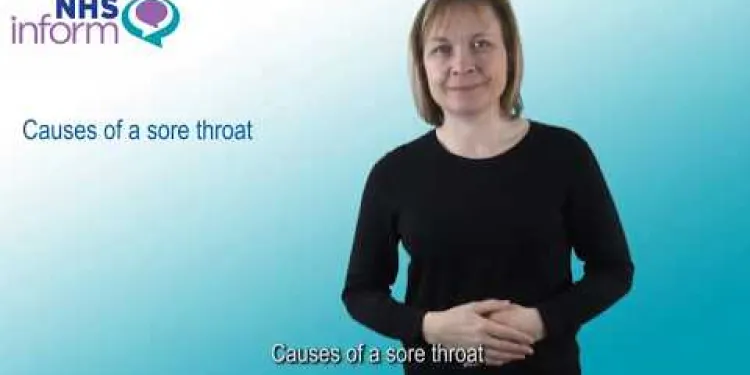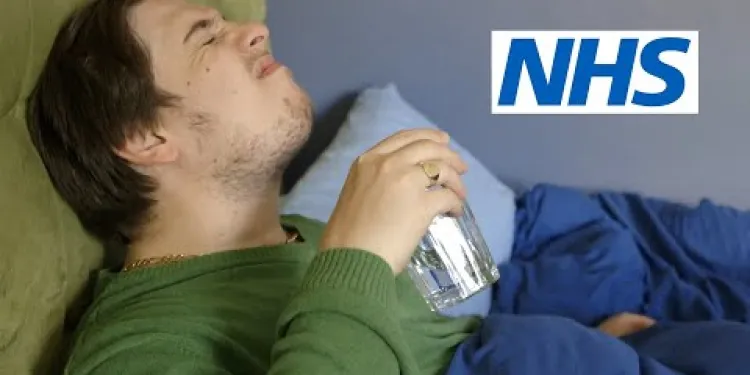Find Help
More Items From Ergsy search
-

Bacterial vaginosis
Relevance: 100%
-

What is the treatment for bacterial meningitis?
Relevance: 40%
-

How serious is bacterial meningitis?
Relevance: 40%
-

What causes bacterial meningitis?
Relevance: 39%
-

What is meningitis?
Relevance: 16%
-

Is meningitis contagious?
Relevance: 16%
-

What are the main types of meningitis?
Relevance: 15%
-

Why is meningitis a medical emergency?
Relevance: 14%
-

What is the prognosis for viral meningitis?
Relevance: 13%
-

Acute COPD in Adults: Antibiotics or not - Dr Nick Francis
Relevance: 13%
-

Can meningitis cause long-term complications?
Relevance: 13%
-

Can I take antibiotics for a cold?
Relevance: 13%
-

Who is at higher risk of contracting meningitis?
Relevance: 12%
-

What are common symptoms of meningitis?
Relevance: 12%
-

Treating a sore throat
Relevance: 12%
-

How soon do symptoms appear after infection?
Relevance: 11%
-

How is meningitis diagnosed?
Relevance: 11%
-

What are the symptoms of chickenpox?
Relevance: 11%
-

What are the complications of chickenpox?
Relevance: 10%
-

Causes of a sore throat
Relevance: 10%
-

Are there vaccines for meningitis?
Relevance: 10%
-

Causes of irritable bowel syndrome (IBS)
Relevance: 10%
-

How to treat tonsillitis | NHS
Relevance: 10%
-

Are there any complications associated with shingles?
Relevance: 10%
-

Think Pharmacy: Conjunctivitis
Relevance: 10%
-

What causes viral meningitis?
Relevance: 10%
-

Antibiotics and You: An introduction to antibiotic resistant infections
Relevance: 9%
-

Help with tonsillitis
Relevance: 9%
-

What are the signs of meningitis in infants?
Relevance: 9%
-

What is the treatment for chickenpox?
Relevance: 9%
-

Can meningitis be prevented?
Relevance: 8%
-

Can antibiotics treat norovirus?
Relevance: 8%
-

How to care for someone with chicken pox
Relevance: 7%
-

Sore throat: what should I do?
Relevance: 7%
-

What is non-infectious meningitis?
Relevance: 7%
-

What causes appendicitis?
Relevance: 7%
-

What is a bubo?
Relevance: 7%
-

Common health questions about chickenpox | NHS
Relevance: 7%
-

Can I get impetigo more than once?
Relevance: 7%
-

Are there any complications associated with shingles?
Relevance: 7%
Bacterial Vaginosis: Understanding the Condition
What is Bacterial Vaginosis?
Bacterial Vaginosis (BV) is a common vaginal infection caused by an imbalance of the naturally occurring bacterial flora in the vagina. In a healthy vagina, beneficial bacteria known as lactobacilli dominate. However, with BV, there's an increase in harmful bacteria, leading to symptoms and discomfort.Causes and Risk Factors
The exact cause of Bacterial Vaginosis remains unclear, but several factors can disrupt the vaginal bacterial balance. These include: - Multiple sexual partners or new sexual partnerships. - Douching, which can remove beneficial bacteria. - Use of intrauterine devices (IUDs). - Smoking.Symptoms of Bacterial Vaginosis
Many women with BV may not experience symptoms. However, when symptoms do occur, they can include: - A greyish-white vaginal discharge. - A fishy odor, particularly after sexual intercourse. - Vaginal itching or irritation. - Burning sensation during urination.Diagnosis and Testing
If you suspect you have BV, it's important to see a healthcare professional. Diagnosis typically involves: - A pelvic examination. - A sample of vaginal discharge being taken and examined. - pH testing of vaginal fluids. UK healthcare services, such as the NHS, provide resources and clinics for diagnosis and treatment.Treatment Options
Bacterial Vaginosis can usually be treated effectively with antibiotics prescribed by a healthcare provider. Common treatments include: - Metronidazole: available in oral tablet form or as a gel. - Clindamycin: available as a cream or oral tablets. It's important to complete the entire course of antibiotics, even if symptoms improve before the medication is finished.Prevention and Management
To reduce the risk of developing BV, consider the following measures: - Avoid douching to maintain natural bacterial balance. - Practice safe sex and reduce the number of sexual partners. - Use mild, unscented soaps and avoid perfumed products in the genital area. - Maintain a healthy lifestyle, including quitting smoking.When to Seek Medical Attention
If you experience symptoms of BV or recurrent infections, it's essential to consult a healthcare professional. Untreated BV can increase the risk of sexually transmitted infections (STIs) and complications during pregnancy. Regular check-ups and prompt treatment are crucial for maintaining vaginal health.Conclusion
Bacterial Vaginosis is a manageable condition with the right diagnosis and treatment. By understanding the causes, symptoms, and preventive measures, women in the UK can take proactive steps to maintain their vaginal health and seek timely medical advice when necessary.Bacterial Vaginosis: Understanding the Condition
What is Bacterial Vaginosis?
Bacterial Vaginosis (BV) is a common infection that happens in the vagina. It is caused by an imbalance of bacteria. Normally, healthy bacteria called lactobacilli live in the vagina. In BV, there are too many bad bacteria, which can cause discomfort.Causes and Risk Factors
We don’t know exactly what causes Bacterial Vaginosis, but some things can upset the balance of bacteria. These include: - Having many sexual partners or a new sexual partner. - Douching, which washes away good bacteria. - Using intrauterine devices (IUDs) for birth control. - Smoking cigarettes.Symptoms of Bacterial Vaginosis
Sometimes, women with BV have no symptoms. When symptoms happen, they can include: - A greyish-white discharge from the vagina. - A fishy smell, especially after sex. - Itching or irritation in the vagina. - A burning feeling when peeing.Diagnosis and Testing
If you think you have BV, see a doctor. They will do tests like: - Checking inside the vagina. - Taking a sample of the discharge to look at it. - Testing the pH of vaginal fluids. In the UK, places like the NHS offer help for diagnosing and treating BV.Treatment Options
Doctors can usually treat BV with antibiotics. Common treatments are: - Metronidazole: You can take it as a pill or use it as a gel. - Clindamycin: Available as a cream or pills. It is important to finish all your medicine even if you feel better before it’s done.Prevention and Management
To help stop BV from happening: - Avoid douching to keep the natural balance of bacteria. - Have safe sex and try to have fewer sexual partners. - Use mild, unscented soaps and avoid perfumes in the genital area. - Live a healthy life, like not smoking.When to Seek Medical Attention
If you have symptoms of BV or keep getting infections, see a doctor. Untreated BV can make it easier to get other infections and can cause problems if you are pregnant. Regular check-ups and quick treatment are important for keeping healthy.Conclusion
Bacterial Vaginosis can be managed with the right care. By knowing what causes it, looking out for symptoms, and taking preventive steps, women in the UK can keep their vaginal health and get medical help when needed.Frequently Asked Questions
What is bacterial vaginosis (BV)?
Bacterial vaginosis (BV) is a common vaginal infection caused by an imbalance of the bacteria normally present in the vagina. This leads to an overgrowth of certain types of bacteria.
What are the common symptoms of BV?
Common symptoms include a thin, white or grey vaginal discharge, a strong fishy odour, especially after sex, and a burning sensation during urination.
How is BV diagnosed?
BV is typically diagnosed through a pelvic examination and laboratory tests of vaginal fluid.
What causes bacterial vaginosis?
The exact cause of BV isn't fully understood, but it is linked to an imbalance in the vaginal bacteria. Factors that may affect this balance include douching, new or multiple sex partners, or using an intrauterine device (IUD) for contraception.
Is BV a sexually transmitted infection (STI)?
While BV is not classified as an STI, having multiple sex partners or a new sex partner can increase the risk of developing BV.
Can BV go away on its own?
In some cases, BV may resolve without treatment. However, it is advisable to seek medical advice and treatment to prevent complications and recurrence.
How is BV treated?
BV is typically treated with antibiotics prescribed by a healthcare provider. Common medications include metronidazole or clindamycin.
Can I have BV and no symptoms?
Yes, it's possible to have BV without any noticeable symptoms. Some women do not experience any signs but can still have the condition.
Can BV be prevented?
You can reduce the risk of BV by avoiding douching, limiting the number of sex partners, and using condoms.
Can BV affect my pregnancy?
Untreated BV during pregnancy can increase the risk of complications such as premature birth and low birth weight. It is important to seek treatment if you are pregnant and suspect you have BV.
Can men get BV?
No, BV is a condition that affects women. However, male partners of women with BV may notice some irritation following sex.
Is it safe to use home remedies for BV?
While some home remedies may help alleviate symptoms, it's important to consult a healthcare professional for proper diagnosis and treatment to avoid complications.
Why does BV keep coming back?
Recurrent BV can be due to several factors, including an imbalance in vaginal flora, sexual activity, or improper use of antibiotics. Your healthcare provider can help manage and prevent recurrence.
Can BV lead to more serious health issues?
Yes, if left untreated, BV can increase the risk of sexually transmitted infections and complications in pregnancy. It can also lead to pelvic inflammatory disease (PID).
Should I avoid sexual intercourse while being treated for BV?
Yes, it is advisable to avoid sexual intercourse until you have completed your treatment and symptoms have fully resolved to prevent irritation and recurrence.
What is bacterial vaginosis (BV)?
Bacterial vaginosis, or BV, is an infection. It happens in the vagina. It is not from germs (bacteria) that are bad. It happens when normal germs in the vagina get out of balance.
Helpful tools and tips:
- Use simple words to explain more. "BV is a kind of germ problem in your private parts."
- Use pictures of good and bad germs.
- Break information down into small, easy parts.
Bacterial vaginosis, or BV, is an infection in the vagina. It happens when there are more bad bacteria than good bacteria in the vagina.
What are the signs of BV?
BV stands for Bacterial Vaginosis. It is an infection. Here are some signs you might notice:
- A different smell from the vagina, like fish
- Itching or burning feeling down there
- Watery or gray, thin discharge
If you have these signs, it might help to talk to a doctor.
People might notice some signs like:
- A thin white or grey liquid from the vagina.
- A strong fishy smell, especially after having sex.
- It might hurt or burn when you go to the bathroom to pee.
If you have trouble reading, try these ideas:
- Point at the words with your finger as you read them.
- Ask someone to read with you.
- Use an app that reads text out loud.
How Do Doctors Know if You Have BV?
BV means Bacterial Vaginosis. It is an infection.
Doctors can find out if you have BV by doing a test. Here is how:
- Doctors ask questions about how you feel. They ask about smells or any itching.
- Doctors look at the areas that feel itchy or have a smell.
- Doctors take a small sample. They might use a cotton swab. It does not hurt much.
- Doctors look at the sample under a microscope. They check for bacteria.
If you need help reading or understanding, you can:
- Ask a friend or family member to read with you.
- Use apps that read text out loud.
Doctors usually find out if someone has BV by checking inside the lower belly and testing some fluid from the vagina.
What makes bacterial vaginosis happen?
Doctors don’t know exactly why BV happens. But, they think it’s because there are too many bad bacteria and not enough good bacteria in the vagina. This can happen if you clean inside the vagina too much, have new or many sex partners, or use a birth control device called an IUD.
Can you catch BV from sex?
Bacterial vaginosis (BV) is not a sexually transmitted infection (STI). But if you have a lot of sexual partners or a new partner, the chance of getting BV can go up.
Can BV go away by itself?
BV is a problem that affects your private parts. It can sometimes go away without help, but it's a good idea to see a doctor. They can give you medicine to make it better. A doctor can also tell you how to take care of your body to stop it from coming back.
Try using helpful tools like reminders to take medicine or talk to someone you trust if you have questions.
Sometimes, BV can go away on its own. But it is a good idea to talk to a doctor and get treatment. This can stop problems and help BV not come back.
How can BV be made better?
Doctors can give you medicine to help with BV. You usually take a type of medicine called antibiotics. The two main ones are metronidazole and clindamycin.
Can I have BV and not feel sick?
Yes, you can have BV and not know it because there are no signs. Some women do not feel any changes but still have BV.
Can you stop BV from happening?
You can keep your body healthy. Here are some things you can do:
- Do not use special washes inside your body.
- Try to have fewer sex partners.
- Use condoms when you have sex.
These tips can help keep you safe and well.
Can BV affect my pregnancy?
Bacterial Vaginosis (BV) is an infection. It can happen in the vagina. If you are pregnant and think you have BV, talk to your doctor. It is important.
What can happen with BV when pregnant?
- It might cause early birth.
- It might cause the baby to be born smaller than usual.
If you notice changes in your vagina, like smell or how it looks, tell an adult. They will help you see a doctor.
Here are some helpful tools:
- Ask someone you trust to go with you to the doctor.
- Use a calendar to track your doctor visits.
- Write down any questions you have to ask the doctor.
If you have BV and are pregnant, it can cause problems like having your baby early or the baby being very small. If you think you have BV, it is very important to see a doctor.
Can men get BV?
Bacterial Vaginosis (BV) is an infection. It mostly happens in women. Men usually don’t get BV. But it’s good to learn and ask a doctor if you have questions.
If something feels wrong or you have questions about your health, talk to a doctor or nurse. They can help you understand.
You can use tools like pictures, videos, or apps to learn more.
No, BV is a health problem that only women get. But, if a woman has BV, her male partner might feel a little bit sore after sex.
Can you use home treatments for BV safely?
Using home remedies for BV (bacterial vaginosis) can be safe, but it's important to be careful. Here are some things you can do:
- Talk to a doctor first to make sure it's okay.
- Read about the remedy to know how it works.
- Use trusted sources for advice, like doctors or reliable websites.
If you feel worse, stop using the remedy and tell a doctor.
Some things you can try at home might help you feel better. But it's important to talk to a doctor to make sure you get the right help and don't get worse.
Why does BV keep coming back?
Bacterial Vaginosis (BV) is a common infection for people with vaginas. If BV keeps coming back, it means it is not going away for good. This can happen for different reasons.
BV happens when the good and bad germs in the vagina are out of balance. If BV keeps returning, it might be because:
- Not finishing the medicine for BV.
- Using things like douches or sprays that upset the balance.
- Changes in hormones or having new sexual partners.
Here are some ways to help stop BV from coming back:
- Take all the medicine the doctor gives you, even if you feel better.
- Try not to use douches or sprays. They can upset your body's balance.
- Talk to your doctor about other ways to keep good germs balanced.
If you need more help understanding BV, ask a doctor or healthcare worker. There are also apps and websites that can explain things with pictures or videos.
Getting BV (Bacterial Vaginosis) again and again can happen for a few reasons. This might be because the healthy bacteria in the vagina are not balanced. It can also be because of sex or not using antibiotics correctly. Your doctor or nurse can help you stop BV from coming back.
Can BV cause other health problems?
BV, or Bacterial Vaginosis, is an infection in the vagina. If it's not treated, it can cause other problems. It's important to see a doctor if you think you have BV.
Here are some things that can help you understand better:
- Ask someone you trust to help explain things.
- Use pictures or videos to learn about BV.
- Talk to a nurse or doctor if you have questions.
Yes, if you do not treat BV, it can make it easier to get infections you catch from someone else. It can also cause problems when you have a baby. It might also cause a problem in your belly called PID.
Can I have sex when I am being treated for BV?
It is better not to have sex until your BV is better. BV means Bacterial Vaginosis. BV is an infection. Wait until your treatment is finished and you feel better. Ask your doctor or nurse for help. You can use a calendar to remember when to take your medicine. You can also use a reminder on your phone.
Yes, it is best not to have sex until your treatment is finished and you feel better. This helps stop the problem from coming back.
Useful Links
- Ergsy carfully checks the information in the videos we provide here.
- Videos shown by Youtube after a video has completed, have NOT been reviewed by ERGSY.
- To view, click the arrow in centre of video.
- Most of the videos you find here will have subtitles and/or closed captions available.
- You may need to turn these on, and choose your preferred language.
- Go to the video you'd like to watch.
- If closed captions (CC) are available, settings will be visible on the bottom right of the video player.
- To turn on Captions, click settings .
- To turn off Captions, click settings again.
More Items From Ergsy search
-

Bacterial vaginosis
Relevance: 100%
-

What is the treatment for bacterial meningitis?
Relevance: 40%
-

How serious is bacterial meningitis?
Relevance: 40%
-

What causes bacterial meningitis?
Relevance: 39%
-

What is meningitis?
Relevance: 16%
-

Is meningitis contagious?
Relevance: 16%
-

What are the main types of meningitis?
Relevance: 15%
-

Why is meningitis a medical emergency?
Relevance: 14%
-

What is the prognosis for viral meningitis?
Relevance: 13%
-

Acute COPD in Adults: Antibiotics or not - Dr Nick Francis
Relevance: 13%
-

Can meningitis cause long-term complications?
Relevance: 13%
-

Can I take antibiotics for a cold?
Relevance: 13%
-

Who is at higher risk of contracting meningitis?
Relevance: 12%
-

What are common symptoms of meningitis?
Relevance: 12%
-

Treating a sore throat
Relevance: 12%
-

How soon do symptoms appear after infection?
Relevance: 11%
-

How is meningitis diagnosed?
Relevance: 11%
-

What are the symptoms of chickenpox?
Relevance: 11%
-

What are the complications of chickenpox?
Relevance: 10%
-

Causes of a sore throat
Relevance: 10%
-

Are there vaccines for meningitis?
Relevance: 10%
-

Causes of irritable bowel syndrome (IBS)
Relevance: 10%
-

How to treat tonsillitis | NHS
Relevance: 10%
-

Are there any complications associated with shingles?
Relevance: 10%
-

Think Pharmacy: Conjunctivitis
Relevance: 10%
-

What causes viral meningitis?
Relevance: 10%
-

Antibiotics and You: An introduction to antibiotic resistant infections
Relevance: 9%
-

Help with tonsillitis
Relevance: 9%
-

What are the signs of meningitis in infants?
Relevance: 9%
-

What is the treatment for chickenpox?
Relevance: 9%
-

Can meningitis be prevented?
Relevance: 8%
-

Can antibiotics treat norovirus?
Relevance: 8%
-

How to care for someone with chicken pox
Relevance: 7%
-

Sore throat: what should I do?
Relevance: 7%
-

What is non-infectious meningitis?
Relevance: 7%
-

What causes appendicitis?
Relevance: 7%
-

What is a bubo?
Relevance: 7%
-

Common health questions about chickenpox | NHS
Relevance: 7%
-

Can I get impetigo more than once?
Relevance: 7%
-

Are there any complications associated with shingles?
Relevance: 7%